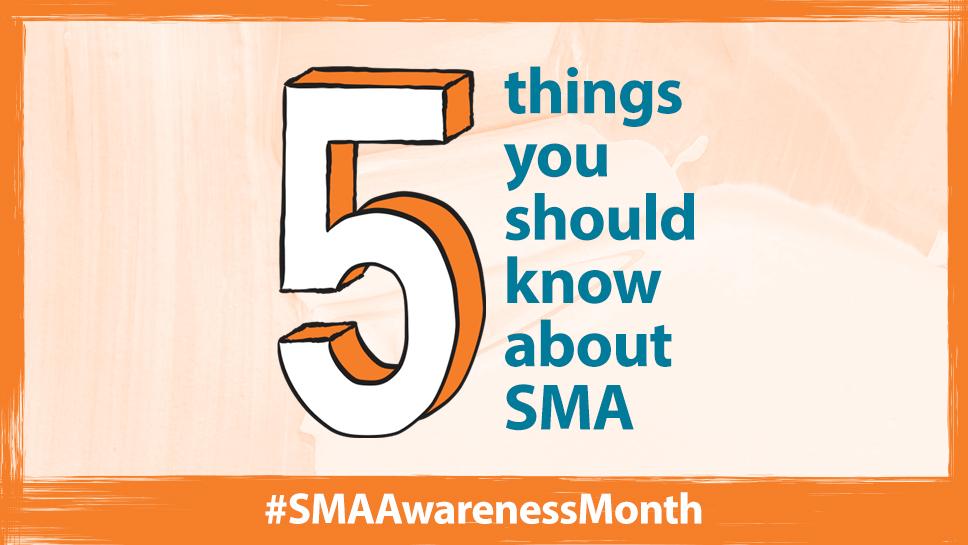Here’s everything you need to know about the rare neuromuscular condition, spinal muscular atrophy (SMA).
5 things you should know about SMA

1. SMA is a progressive muscle wasting condition
Over time, SMA causes muscle weakness and loss of movement, which can affect the ability to crawl and walk. It can also affect arm, hand, head and neck movements, as well as breathing and swallowing. This can make everyday tasks very tiring and sometimes leads to early loss of life.
2. It affects 1 in 40 people in the UK
Approximately one in 40 people carry the faulty SMN1 gene present in SMA, meaning there are around 1.6 million SMA carriers in the UK. SMA is an autosomal recessive condition, which means that usually, a child will not have SMA if only one parent is a carrier. If both parents carry the faulty gene the child has around a one in four chance of being born with a type of SMA. Recent studies indicate that approximately one in every 10,000 babies worldwide are born with a type of SMA, with other cases developing later in life.
3. There are six types of SMA
SMA type 0 is characterised by the decreased fetal movement prior to birth. Symptoms for SMA type 1 usually begin between 0 and six months. Symptoms of type 2 usually develop between seven and 18 months of age. SMA Type 3a usually becomes present at 18 months and three years of age, and symptoms of SMA Type 3b usually begin after the age of three. Symptoms for type 4 usually start in adulthood.
4. Research into treatments for SMA has made huge progress
Thanks to research into SMA, there are now a range of treatments and screenings available for the people with the condition in the UK. New technology means new born babies can even be screened for the condition within days of birth so they can begin treatment as early as possible. MDUK played an important role in the NICE appraisal process of these new treatments.
5. MDUK is dedicated to finding a cure for SMA
We won’t stop funding research and supporting those with SMA until a cure is found. In the meantime, we are dedicated to supporting people with the condition to access the help they are entitled to, and we’re working with the NHS to ensure all people with SMA can receive high-quality treatment on the NHS, wherever they live in the UK.
Keep up to date with the developments in research and care for SMA, and all muscle-wasting conditions, by signing up to our newsletter here.


